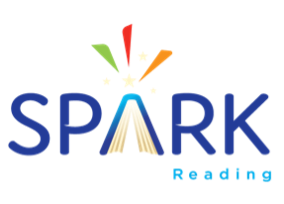
Welcome to the March edition of the Spark newsletter! We are thrilled to share our latest news with you! This month, we’re sharing tips to help encourage students to read at home with Spark. We’re also sharing more tried and tested teacher tips for using Spark, and we’re excited to announce that we now have 131 decodables! Thank you for joining us on this journey to promote reading and learning!
Encourage At-Home Reading with the Bookbox
Use Spark to challenge students to read at home with these three easy steps!
1. Assign Books to Each Student’s Bookbox.
Assigning books is quick and easy. If you’re new to Spark or your students need a refresher on using the Bookbox, these videos and articles will help.
Tips For Students
Spark Reading for Students: How to Find and Send Books to My Bookbox (Video)
My Bookbox (Help Article)
Tips For Teachers
Spark Reading for Teachers: How to Find and Send Books (Video)
Assigning Books (Help Article)
2. Share Login Details with Caregivers
From inside Spark, you can print or save individual parent letters that provide each student’s login details and your class code (along with a quick overview of how to log into Spark). You can print the letters or save the files and share them through email or your digital classroom.
Use these support docs to help you get started.
- Viewing and Printing Student Letters (Help Article)
- Watch this video to see where you can find student letters in Spark (start at the 1:25 min mark)
- This editable template letter for parents is a quick way to share everything parents need to encourage students to use Spark for reading at home.
3. Make it fun!
Whether it’s a little friendly competition, a personalized challenge based on students’ interests, or a reading challenge based on a learning unit you’re covering, there are plenty of ways to add some fun to reading time.
- Challenge students to a book scavenger hunt! Ask them to find and read five books related to specific topics, themes, or authors (Poetry, Spring, Munsch).
- Assign some of the many sports-related books in Spark. You’ll find books about lacrosse, skateboarding, skiing, hockey, soccer, and more.
- Assign books you plan to read after a weekend or holiday break to give students a headstart or simply ask students to choose and read their favorites.
- Challenge students to self-assess their reading over the break by assigning books with the Listen to Myself Reading feature. (Learn more about this feature in our January 2023 Newsletter). You can even ask them to jot down their assessments to share with you.
Feature Highlight!
Spark is Bursting With Decodables!
There are now 131 decodable books in Spark, including ten new Canadian decodables! These new Canadian titles were created by Pearson and are already inside Spark, waiting to be explored.
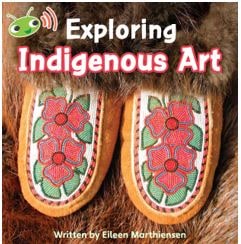
Exploring Indigenous Art
Wordless
Explore different sorts of Indigenous art, including painting, sculpture, and beadwork.
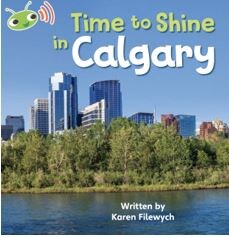
Time to Shine in Calgary
/igh/, ie, i-e, y, i
Calgary has many sunny days each year. What are some things you can see and do there?
Teacher Tips: Ideas for Using Spark in Your Classroom
So many of you have told us you love the Teacher Tips we’ve been sharing, so we decided to share more this month. Enjoy!
To Support Math, Science, and Social Studies
“We read one Spark book a week about a math, science, or social studies concept that we are learning about. Students then answer the interactive questions independently. “
— Combined Grade Level Teacher
To Encourage Independent Reading
“We've just started using Spark, but students love to log in and explore independently. Some of the most hesitant readers are enjoying Spark and the range of books available.”
— Grade 2 Teacher
To Support Guided Reading
“I use this program for my guided reading. The children love the content, and I love the comprehension check-in pieces.”
— Grade 3 Teacher
BOOK SPOTLIGHT
March has some fun special days, including World Poetry Day and World Water Day. And, of course, Spark has books to help your students connect with these topics through reading. Check out our March Book Spotlight for titles to connect with these special days and more.
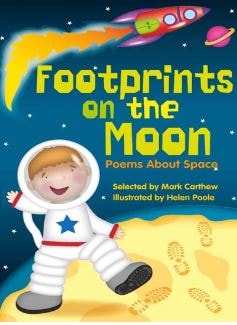
Footprints on the Moon
(Reading Level L)
If you want to take a trip, climb aboard this rocket ship!
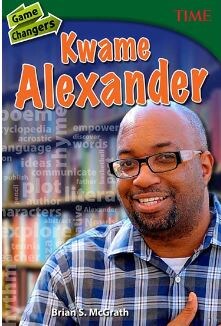
Game Changers: Kwame Alexander
(Reading Level X)
Kwame Alexander hated to read, but he loved poetry – and basketball. Today he’s an award-winning author.
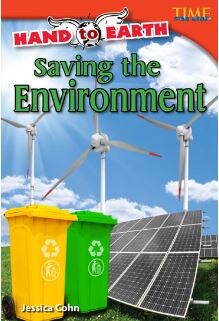
Hand to Earth: Saving the Environment
(Reading Level T)
Would you like to help solve the problems our planet faces? Begin by understanding them.
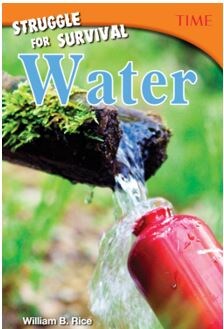
Struggle for Survival: Water
(Reading Level W)
Do you have the knowledge and skills to survive disaster? Your life might just depend on it.